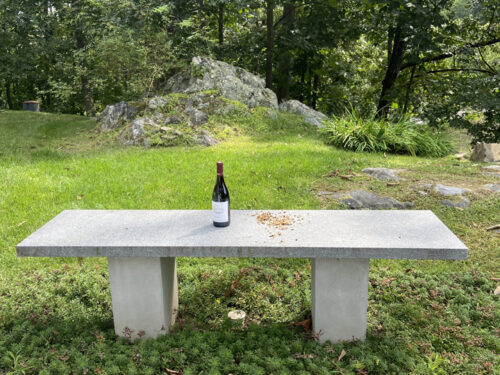
The other day I got caught in the rain on my morning walk. More than a drizzle, less than a downpour.
I don’t relish walking in the rain. I count on a 15-minute margin of error in timing my walks to the local weather forecast. Meteorology is only so precise.
A neighbor passed me on the road, offered me a ride home.
I’m okay, I laughed.
It’s summer, after all. Not a freezing cold winter day. I let the rain drench me.

I’d recently finished reading D. J. Lee’s beautifully written, multilayered story, Remote: Finding Home in the Bitterroots. What starts out as a journey to seek clues to a friend’s disappearance becomes an exploration of her family’s past and their relationship, as well as hers, to a part of Idaho that holds the most pristine river in the country, outside of Alaska. Chinook Salmon return to the Selway River to spawn.
If you’re able to define wilderness, to pin it down, then it isn’t wilderness, she writes.
Back in 1978, I was riveted by a National Geographic cover story about a woman who went through the Australian Outback by herself (accompanied by four camels and a dog). To this day I recall her thinking, after hearing voices on Day 71, that she might be going mad. Without her being tracked, there would be no National Geographic photos (and a book that would follow) which only served to relieve my anxieties, vicarious or otherwise.

I still have that issue, and a handful of others, despite the now never-ending spring cleaning intensified by an ongoing pandemic. Riffling through the glossy pages I’m charmed by an advertisement for a Smith-Corona typewriter, with its state-of-the-art Correction Cartridge. I had one of those.
At the ripe age of 70, I honor what’s in my comfort zone, which doesn’t negate my envy for women who take treks to remote places, with the deep connection to the natural world it brings. I imagine an aloneness that is empowering.
It dawned on me, as I made my way home, that the pandemic, coupled with the upcoming election, have me feeling as if I’m on hold.
Waiting.
For an answer to something to which there can’t be an answer. I want to know—-right now—when the pandemic will be under control. I need every assurance—right now—that Biden will win the presidency, with Kamala at his side. It’s not a stretch to see this as all of a piece with walking in the rain.

On hold. Reading a lot. Writing very little, if at all. Meditation, yoga, music get me through the day. I think too much about what to cook for dinner.
I spend a lot of time alone, a product of a work-at-home lifestyle magnified by the pandemic—which makes it all the more ironic that I’m not working much these days. I’ve become a master of distraction, today’s joy being the magic of a coral reef Apple TV screensaver that I stare at to a backdrop of piano music.
The world is heating up, literally on fire. Even from a distance, and in the comfort of an air-conditioned living room, it’s hard to process.
Is it an unsimple twist of fate that in these dark COVID-19 times, worsened immeasurably by the lies and greed and psychosis of the monster-in-chief, Bob Dylan has his first No. 1 Billboard hit, seventeen-minutes long at that?
I’m looking for a word to capture the very subtle shift in light signaling the arrival of autumn. I picture the glow I forever associate with Florence, Italy.
Evening arrives sooner. Rosh Hashanah dinner, a few weeks from now, will be a very quiet affair this year.
A girl and her mother are jumping puddles, in yellow boots.
Children are returning to school in staggered schedules.
A teenager glides by on a skateboard, carried along by his dog, a beautiful Husky, on a leash.
Bruce Springsteen wrote “Into the Fire” in response to 9/11.
Bob Dylan wrote “Murder Most Foul,” well, because he’s Dylan. The timing of the song, on his new album, have a reassuring effect on me.
The pandemic has warped our sense of time. It was only in March that I began blogging more frequently, with a greater sense of purpose. Little did I know that my own Corona diaries would place me in a collective of writers with the same mindset. To reread The Existential Inconvenience of Coronavirus, a New Yorker essay by Geoff Dyer that also appeared in March, is to have a real-time reminder of how things looked back then.
Somewhere between then and now, the urgency to write dissipated. If I say, simply, it is what it is, I take the thunder from Michelle Obama’s brilliant use of the phrase during the DNC. I breathe a little easier now that both conventions have come and gone.
There is a Buddhist notion of freedom in confinement. For all the despondency the pandemic has given rise to, I find myself opening to new ways of approaching everyday things. Why did I keep the wooden garlic smasher for so long? The flat edge of a large knife works just fine. All those years of downward-facing dog and pigeon and vinyasas in intimate classes with yoga teachers I’ve learned so much from have given me grounding to pick and choose from an online smorgasbord of programs available to me. It’s a whole new world. I do poses with fresh insights. At its heart a yoga practice is personal.
No one would wish for the kind of confinement the pandemic has wrought. I may be anxious to know what I can’t know but this time warp, reset, call it what you will has also given rise to questions I don’t need any answers to. Will I write another blog post? If so, when?
Or at the ripe age of 70 are my days better spent sipping wine on a stone bench some squirrel has used as a nutcracker, as I ease my way back, fictionally speaking, into where I left off? Inspiration has never been in short supply for me, but all the real-time writing spurred by the pandemic is humbling. Just look at The Decameron Project or The Chronicles of Now. Maybe there’s some fresh start I’m headed for, now that I grasp the vast divide between being on hold and holding on.
This may be as close as I get to a wilderness journey of my own.
—September 11, 2020

